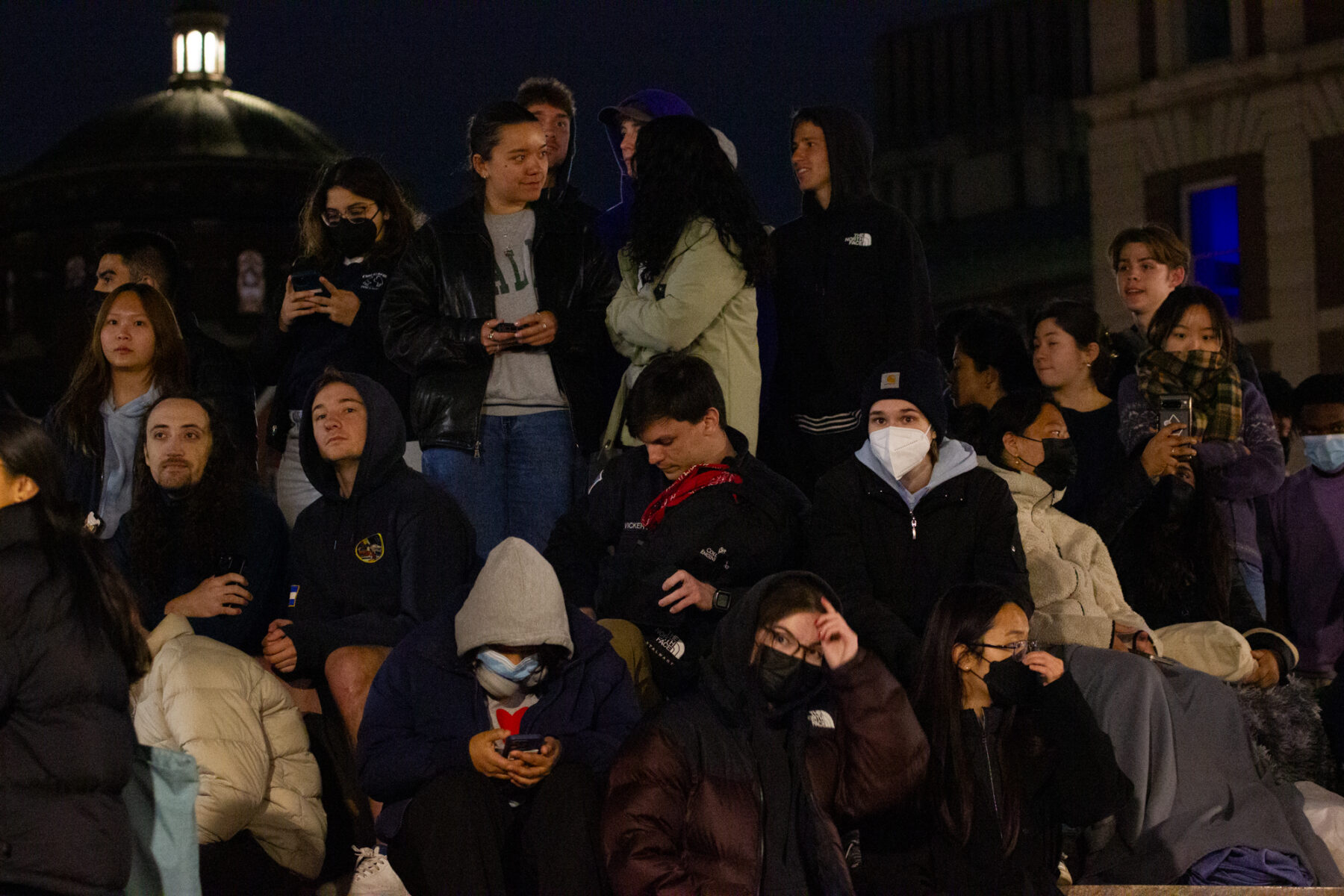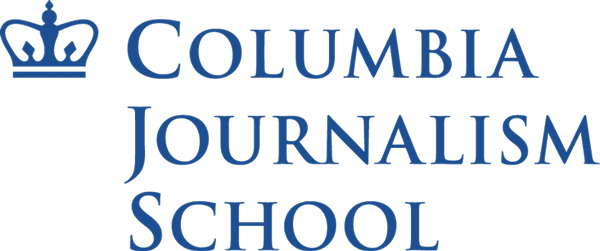
People watch demonstrators from the sundial at College Walk on Columbia’s campus. (Credit: Edward Lopez)
Negotiations are ongoing as demonstrators and Columbia University officials seek to de-escalate on Morningside Campus, where the Gaza Solidarity encampment enters its second week on the West Lawn.
The Office of Columbia University President sent an email at 4:07 a.m. on April 24 notifying the school’s community of a breakthrough in the talks, putting an end to a long night of tension and confusion in the camp.
According to the email, student organizers have agreed to reduce the number of tents and ejecting protesters who are not Columbia-affiliated. They have also committed to comply with FDNY regulations, and prohibit discriminating language and harassment, after incidents of antisemitism have been documented inside and outside of the campus gates.
Just about six hours earlier, Columbia University President Minouche Shafik had released a statement setting a midnight deadline for negotiations to be successful. “If they are not,” she wrote, “we will have to consider alternative options for clearing the West Lawn and restoring calm to campus so that students can complete the term and graduate.
That statement brought confusion and panic to the camp, where demonstrators began to re-organize hastily in the same way they did on April 18, when Shafik instructed the New York City Police Department to come into campus and dismantle the original encampment, an operation that resulted in more than 100 arrests.
On Tuesday night and early Wednesday morning, students willing to be arrested stayed on the site, while the remainder rallied nearby on the grass patch in front of Furland Hall. Supplies were briefly placed at the steps of Joe’s Coffee in between Furland and Pulitzer halls awaiting what never came to be.
Students at other universities, including New York University and The New School, have started demonstrations in solidarity. Encampments with similar demands have sprung up at UC Berkeley, Emerson and Tufts.
On Monday, the university announced that classes will take a hybrid format until the end of the semester. Preparations for the May graduation ceremonies continue on the Morningside Campus.
“I am deeply sensitive to the fact that graduating seniors spent their first year attending Columbia remotely,” Shafik said in her statement on Tuesday night, referring to the disruption brought by the Covid-19 pandemic. “We all very much want these students to celebrate their well-deserved graduation with family and friends.”
About the author(s)
Edward Lopez is from Fresno, California. He currently reports on New York City and is pursuing a Master's Degree in journalism.



